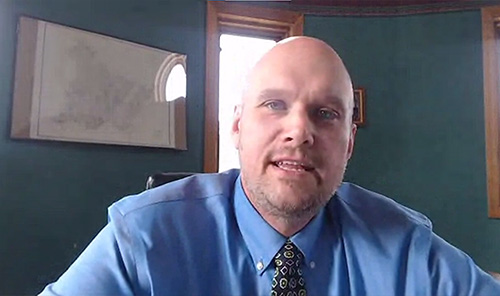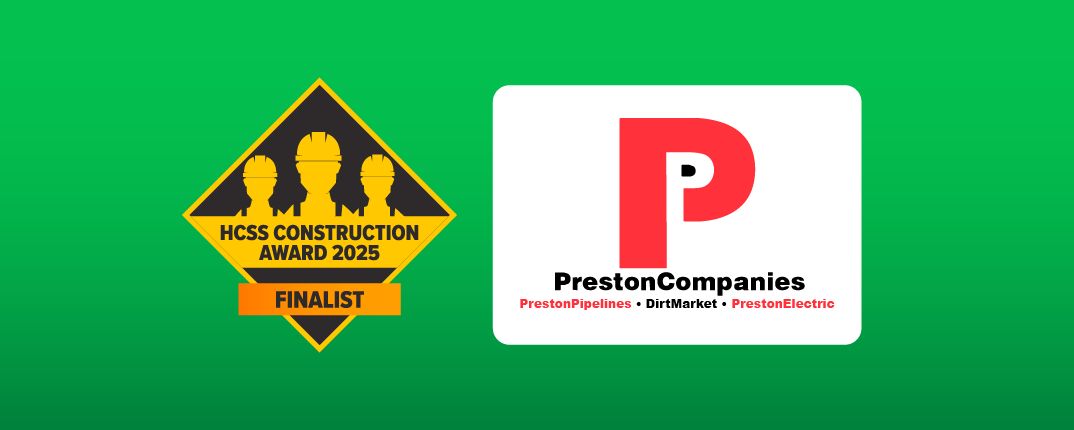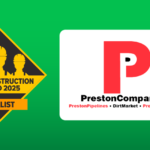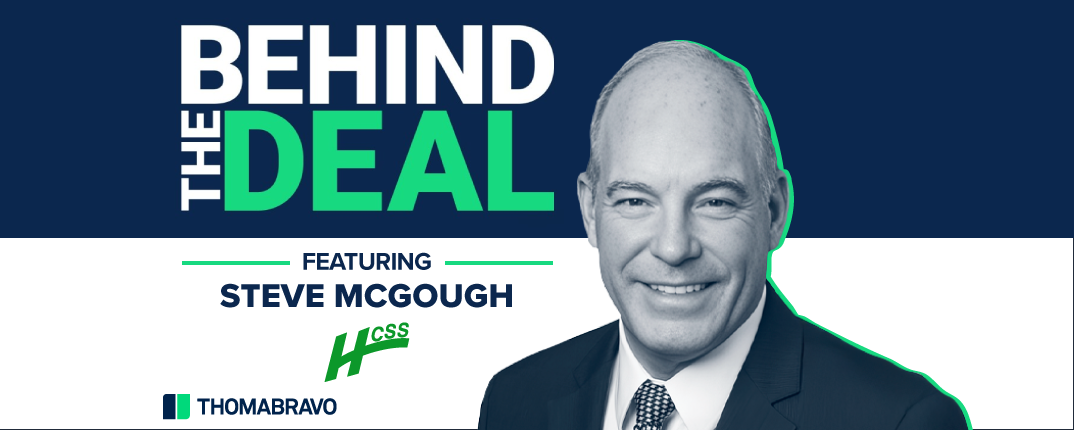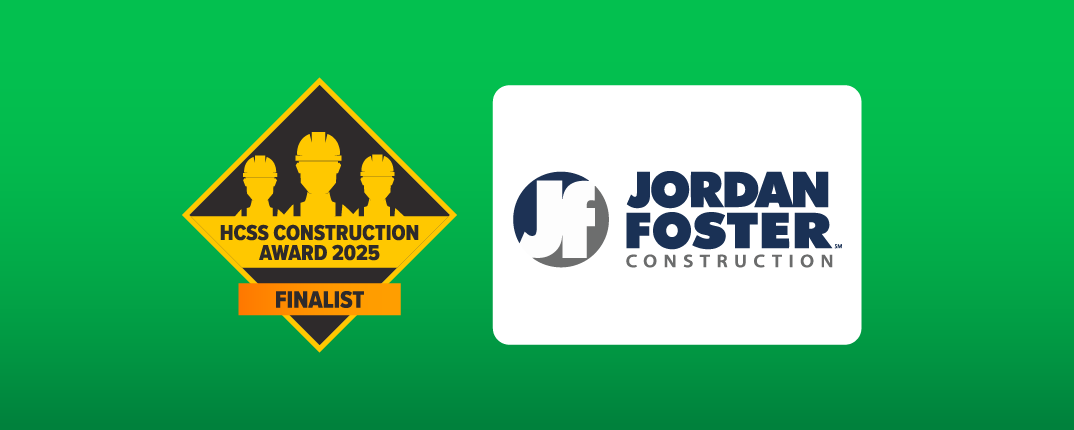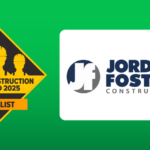Tim Zeglin is the Vice President of Frontier Environmental, a general contractor based in Jones Mills, Pennsylvania. They focus on developing the landscape in Appalachia, and are currently running crews in Ohio, West Virginia, and Pennsylvania. We got Mr. Zeglin's take on the top construction trends and how he thinks they'll impact the industry.
How will automated equipment change the industry in your view?
Automated equipment will change the industry, from running a very conventional best-managed practice in the field to an autonomous fleet that can run according to environmental characteristics. So, automated equipment, simply put, doesn't need to go home to cut the grass. It doesn't need to leave the job site for any reason. So, we're a safer fleet, we're a lower project cost fleet, we're a lower cost overrun. The measure that we'll use with automated equipment is project duration.
As a horizontal contractor in Appalachia, we're subject to more running water than any other spot in a continental United States. So, when we encounter rainfall, we have enormous project impacts. An autonomous fleet can help us when the soil conditions become optimal. We can be planting or restoring right-of-ways. We can be moving dirt and bulk excavation. We can be moving very quickly with, an unconventional in today's standards, work practice, which is a very long day. Twenty or 22 hours is not unreasonable if those soil conditions dictate that you can remain on that project site.
Certainly, local municipalities and other project owners may look at it differently, but from an autonomous fleet, those pieces of equipment would be optimized to run in that set of parameters. So, what they can do is look at the most conventional pieces of the project or the easiest pieces. We can let that night shift crew, the machines running at night, perform those pieces and we could take our employees and allow them to focus on the high risk areas. Focus on the most delicate environmental practices which is a stream crossing for us. As we're crossing a small stream, we've gotta really focus in on the flood plain, the impacts to all of the aquatic life, and that may require us building a bridge, that may require us spanning with timbers or otherwise.
If you have an autonomous fleet, the change that we'll see is very big because we'll have the fleet running on the easiest parts of the projects allowing our employees to focus on the most difficult part of the project and run in the optimal standards. This means our employees will no longer be able to run the machine beyond its capabilities in any one set of parameters.
Simply put, we can't cowboy the machines around anymore. If the machine runs on itself, it's gonna know the parameters that it needs to run under, and it's not going to run when those parameters don't exist. Therefore, we're gonna realize, as a contractor, a lower operating cost because we won't see the additional expense related to any of those running outside of normal parameters, excessive abuse to machines or otherwise. All of these pieces will be kept in a set of parameters and when the machine doesn't reach those parameters or exceeds those parameters, it's going to stop. It's going to have that exception logic that will be very clearly understood.
I think that, an autonomous fleet that will run off of a digital plan set, will be one that's more complete than what our project owners provide us today. We'll have a set of drawings that's able to be read or understood by a machine, that can give us a lower cost, it can give us a lower overall cost, it can give us a faster completion. And, all of those pieces create an opportunity to complete the next project faster as our growing seasons are very limited, our windows of opportunity are very, very limited. We can see all those things really blossom with an autonomous fleet.
What would be the impact of automated payments?
An automated payment would be the crown jewel of any contractor, because an automated fleet or an autonomous fleet running so fast would be also consuming cost to a degree that most conventional contractors wouldn't be able to keep up with the pure cash burn that we would experience. We would have to have some sort of accelerated system for payment, but an automated payment where every team member, project owner, and contractor are all in agreement on the single source of truth for that particular project would be exponential. That in turn would be the gateway to everyone receiving payment faster.
The easiest example to think about is where our fuel supplier is delivering a thousand gallons of diesel fuel today, and he's being paid tonight. The most exciting example would be the impact for our employees. You could no longer look at a conventional pay cycle; you could pay every single employee every day because we were paid every day. That's so exciting because we can look at those types of impacts to our workforce, to our vendors, to make sure that they're taken care of, they're running a profitable organization, or certainly those families are being paid every day. They can now run their life faster, all as a result of that automated payment system that will be really born of automated equipment. So they tie together seamlessly because those automated pieces of equipment are going to provide all the data that will support the claim for payment that's all able to be audited by any number of machines or otherwise.
The biggest impact that we would see from automated payments is the elimination of all of the pieces of the project costs that we implement as a result of not being paid on time. We might call it the trust tax. We might be able to use that to our advantage. To give our customers a lower overall cost as a result of being paid faster. We no longer have to borrow long lines of credit. We no longer have to have pay when paid contracts or otherwise slow down our payment cycle because if we're being paid that fast, then every subcontractor could expect the same, and we can provide a lower cost to our project owners because of that. All in agreeing on the quantities or the application for payments so the style of the contract would be very simple to understand, the logic could be built, and automated payments would be very exciting for everybody involved.
What is the future of supply chain and electronic material ordering?
I truly believe that we can have our fleet make decisions on what they need every day, and make decisions on tomorrow's requirement today so that we make sure we have those things.
The easiest example is diesel fuel. All of these pieces of equipment run on diesel fuel today. They would know what their projected run time would be according to the tasks that they have to achieve that day in order to remain on schedule, therefore, that next day of run time would require a similar quantity of diesel fuel, and allow it to order its own fuel delivery prior to the start of the next day.
As we get further down that path of looking at projects with a more complete plan set from our owners, we can estimate all of the project requirements, and anticipate what those would be on what particular day. We would be able to remain on task, get things completed faster, never have too much, but always have the right amount. We would be able to make sure we have the pieces of that project on site ready to be installed exactly when we need it. Those are the examples that we look at and are really excited about when it comes to supply chain and material ordering.
We're looking at the machines and what they're telling us to make decisions on when we order or when we deliver from a warehouse. If we could take all of that information on where all of those pieces are coming from, where they are in their supply chain to be built, delivered, or otherwise, we can eliminate the need for double handling or triple handling. We could ask for the product as we're entering the project. It could be procured, built, and supplied to us just in time to make sure that we get it installed as part of our process. It would be pretty exciting to see those all come together, because we would be able to supply our project owner a very complete list of sourcing on our project, no matter where it came from, or no matter how big or how small those pieces were. We will be able to supply all of those pieces of information to our project owner just by asking. It would be a pretty exciting development.
How do you see data science driving the future?
Data science will be a very integral piece to a construction company in ten years. Today, we generate so much data that we don't use, that we look past, or otherwise don't acknowledge. We're missing pieces of the puzzle, and we're collecting, or double collecting, or triple collecting the same information, but not storing it properly, and we can no longer build off of that data for the next best estimate.
If we're building a very conventional right away in Appalachia, we do that time and time again. If we're collecting the performance data, environmental data, stream crossing, stream level, water level data, that all impact the cost of our project, that's going to allow us to provide a lower cost to our customer, so we want to use all that data. In today's world, we're collecting all the data, we're storing the data but we're not necessarily using the data to make decisions.
Data science and the role of a data scientist in a construction company is very important from extrapolating the pieces of data required in order to make the decision on the next set of environmental characteristics as they impact the next project that we're looking at, and that information can be very useful for us. Then the overall project owner can look at those pieces of data and we would openly share that.
Today, unfortunately, we take in a lot of data, but then we store it in all the wrong spots and don't routinely look back at it. The biggest one is our iPhone. We all carry around a camera every day, and we take pictures of our project. As we're completing things and covering them up, the only way to confirm that they were done is to dig it back up. If we were able to catalog those pictures of the open trench that had the pipe properly installed, there would be no question as to how it was put in the ground.
Too often, what we see are pieces of data that we've collected and lost, or pieces of data that we have that no one else knows that we have. If all of that data could funnel to a common repository, a data lake, for lack of a better term, and we could use that data and figure out exactly what we're looking for to make the next best decision for our customer, we're gonna be very, very profitable, but we're also gonna create happy customers every single time.
As we move into the future, we're looking at a data scientist for our company. Why? Because they're going to help us do the most fundamental pieces of the project, which is equip our men, or if we have a fully autonomous fleet, equip the fleet for the project that they need to do so that they know exactly how to create a profitable work item that completes the project on time and makes a happy customer. That's the recipe for success for us in ten years.
What does the industry need to do to engage employees more?
This is a great question, because we spend a lot of time in a lot of meetings discussing exactly that. When we step back and look at it, what are we trying to do? Each one of us is trying to create meaningful work and meaningful relationships. We're out there in the middle of Appalachia, a remote work environment with your teammates beside you every day, putting together the pieces of that project in order to make that project successful. You have to rely upon the performance of that worker who's right beside you. If you're running the excavator and they're running the dozer and you're working in tandem, that work has meaning because of the pride that you two have in the product that you're gonna build for that day.
If we can engage those two workers to make sure that they see the meaning behind what they're doing, then they can fully develop their relationship with one another, and then they can understand completely what we're trying to do as a company. Now they've got meaningful work and they've got meaningful relationships that keep them coming back to work beside their coworkers that are both engaged in the mission that we're trying to accomplish: Produce a happy customer so that they continue to use us in Appalachia.
If we can do that, then we can help them understand what the construction industry is. It's the biggest industry that is all over the globe. If they decide today that they want to leave Appalachia and go to Houston, Texas, if they work in construction, there's probably a job for them in Houston, Texas. If they decide that Houston isn't the answer, they can probably move to the state of Washington and find a job in construction as well. If they have that skill set that's required by the construction industry, they'll never be without a job.
We're always building something somewhere. We're always tearing something down or rebuilding it; that's the role of a civilized society. Therefore, if they can look at their job, and understand that the meaning exists with civility, or otherwise the progress of the free world to build infrastructure, to help others get to work, or across a stream or provide energy, then they see the mission that we're on. They can engage in that mission with us every day, and work beside others that are engaged for the same exact reason. There's enormous power in that. If we can just talk to that message with each individual potential worker that's coming into the construction industry, we would be light years ahead of where we need to be to keep the talent at home or in those projects in our local environment.
The fun part about construction is that we can always change our work environment. If we complete a project here today, tomorrow we're not gonna be working there. We're going to pick up the pieces and go build that factory again in another location.
We would take the lessons learned from the last completed project and say, "That didn't work”, or maybe “we ought not do that again”, “let's try this piece”, or “let's try that piece." So, they have a voice in the next project every single time because of what we're able to do. If they can see that, and they can realize that I have an impact on my organization, that they hear exactly what I'm saying, they'll respond to what we need. All of a sudden we have their voice being recognized as part of our mission and values, and we can complete projects for our customers and keep them profitable. Everybody benefits as a result of it.
If you start to layer in parts of this, where I'm getting paid faster, I'm more engaged, my voice is being heard, I really understand the mission and values that we're producing this product, whether that be for energy exploration, whether that be for infrastructure development, whether that's a new office tower in downtown Pittsburgh. Any one of those things are all part of the process that we can be part of in construction, but each one of us is invested, we can realize a better future for everybody involved.
What impact do you expect environmental practices to have on the industry?
When we see changes to environmental practices or updates, we look at it as an opportunity to be innovative. We look at it as an opportunity to explore a new market. We look at it as an opportunity to promote our own internal practices that work hand in hand with environmental practices.
We're always trying to push the envelope to innovate more, or look at any of the environmental practices as they've been applied to our projects that we're performing for our clients. As opportunities to innovate or be an industry leader, we can look ahead and see potential hazards coming as a result of, or maybe be able to innovate around, or propose changes or alternatives to these environmental practices that can allow us to differentiate ourselves from our competitors, to give us an advantage over that competitor, but to also produce the safest possible environment with the least amount of environmental impact.
As we talked earlier, in Appalachia, we have an awful lot of running water. And so we're always looking at bridges, stream data, flow data, and the best time to cross it. Well, if that data could be added to our autonomous operating system, the computer would make the decision for us, and inherently we would become better environmental stewards as a result of that AI engine making the decision on when we can cross that stream.
Anytime we look at our environmental footprint, and our environmental impact, we measure our compliance, our rate of compliance, and then these new standards. These new best management practices that we've applied to our next project and our next cost. Then we look at the cost of those and we discuss it with our customer. Then we may be able to lessen the impact of the new environmental standards, complete their project inside of their compliance characteristics that they're looking for, and produce an alternative that any environmental regulator would look at and applaud.
We look at it as an enormous opportunity to differentiate ourselves, and we look at it as a competitive advantage. If we can go out and tell our customers that we harvested 60 acres of trees from your project last year, and we were able to recycle every single ounce of those trees and put them back on your projects next year, as an erosion control device, that doesn't waste anything. That's keeping the sediment on your projects. Now we've got a component to our project that is actually incestuous. It works in and of itself to create the next best product with the least amount of impact to the environment that is just light years ahead of what our competitors are doing and that we really enjoy the fruits of this labor. We have to take the burden of trying to figure out what's the next best way to do it.
What I hear often is that automated equipment will reduce the need for employees. What is your response to that?
We’ve taken a look at all of the projects that we do and the redundancy that we have, and we would allow that autonomous fleet to produce the product on the most basic application.
Quite frankly, our operators would find that redundant work pretty boring. But, if we have an area, especially here in Appalachia, we'll have lots of hillsides that run straight downhill to a stream, and then straight back up the other side. That's pretty technical. That's something that's going to require our most skilled employees to perform flawlessly because we couldn't build an autonomous fleet that would be able to understand the number of parameters in place, in order to make sure we can safely install a pipeline on that right away, through that hillside, across that stream, or through that stream, and back up the other side. Therefore, we would be able to keep that crew of employees focused on those high risk areas that require their expertise.
What we'll ultimately be able to do with automated equipment is use our employees expertise more and more and more. There would be no redundant or boring processes. That employee would be used at the highest capacity every single hour of every single day. They would see a much greater rate of engagement of their talent, because of what we would be asking them to do every day. By nature, they would become much, much better at it and more desirable in the marketplace and they could command a higher wage as a result of that.
We would recognize their talent, that they have completed stream crossings on every other day of the week, done that safely and efficiently, and allowed our projects to complete ahead of schedule. We're more profitable, and we would absolutely pass the savings onto them. An autonomous fleet would only help our employees become more productive, and really find the true meaning of what they're able to do, because that meaning would be, "I'm a very good operator, and I'm being used at the highest capacity every day that I come to work, and I would be able to really find value for myself and for my family as a result of that." Meaningful work would be the key to that.
As we move forward, we would see them evolve into an operator-less environment that doesn't necessarily put them in harm's way, but it puts them in a data center where they're seeing all the runtime parameters from the machine, not from the physical environment. All of a sudden, we will be able to see them in the same role and function, but in a very safe and controlled environment that doesn't put them out on these county roads, municipal roads, that right now are taking kids to school in the morning and bringing them home at night. We're not flooding those roadways with all of our workers. We're putting those workers in a remote data center that can operate that piece of equipment with the same parameters, in the same slope, in the same characteristics, but now they're in a very safe environment.
Now, we've got a safer worker that's producing the same product as we've expected them to do on the landscape. Now they're in a data center performing that work, and it's dramatically better as a result of it, because safety is the number one priority. If we can produce that for each one of our employees every single day, we're in a good position.
Do you have any other points to make on the future of construction?
I think that we have all of the pieces that we've discussed here today, that all start to tie together. As we have looked at these pieces, or we talk about them, one of them will be the catalyst for change, and all the other pieces will be implemented as a result of it.
The contractor of the future is one that's more focused on their area of expertise, but also reliant entirely upon automated systems and processes to run their business and to make their next best estimate to pay their employees, to pay their vendors, and to allow them to produce the product that they're known for. So, the contractor of the future becomes that business owner with three to five employees that can run all the pieces of equipment and knows everything about that area of the project, and can do that over and over again at the lowest possible cost for their project owner.
We need to encourage all these small business owners to take the leap of faith when they tell us, "I'm not that good of a business owner” or “I don't have an MBA so I'm not gonna take a loan to start my businesses as a stump grinder." Please take the chance. Take it, because the industry will come right to you and cater to all those areas that maybe you're not as good at. Autonomous operating fleets can come in and give you that next crew to allow you to build your business to the next level, not because they don't require as many skilled operators, but because they require the most skilled operators to produce the best product in the most focused areas. Then you can grow from a small business to a medium sized business as a result of that investment in technology, and take the next step and produce happy customers and run at a lower possible cost. There's really a limitless level that we can reach in the industry if we can get more small businesses taking that leap of faith to become the business owner and to really engage in a marketplace that has no limits. Construction will continue to happen across the world wherever they go if they just take the leap of faith to make it happen.
